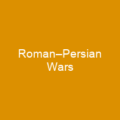Spain, officially the Kingdom of Spain, is a country that has seen its fair share of history and transformation over centuries.
The Ancient Roots
Imagine stepping back in time to the early antiquity when the Iberian Peninsula was home to diverse groups like Celts, Iberians, and other pre-Roman peoples. The Romans arrived with their might, establishing the province of Hispania. It’s fascinating how these ancient civilizations laid the groundwork for what would become modern Spain.
The Roman Legacy
Under Roman rule, Latinisation, Christianity, and the foundation of laws and languages took root. But as the Western Roman Empire crumbled, new tribes like the Visigoths moved in, carving out their own kingdom. The Umayyad Caliphate’s conquest in the early eighth century brought a new wave of Islamic influence, creating Al-Andalus—a powerful entity that thrived for centuries.
The Christian Reconquest
As the Muslim presence grew, so did the pushback from Christian kingdoms. The Reconquista was a long and complex process, with various regions consolidating their power and eventually unifying under Castile and Aragon in 1479. This marked the beginning of modern Spain as we know it today.
The Golden Age
During the Age of Discovery, Spain became a global powerhouse, exploring and conquering vast territories in the New World. The Spanish Empire expanded across continents, making Spain one of the largest empires in history. This era was marked by exploration, conquest, and the exchange of ideas that shaped the world.
The Modern Era
As we move into more recent times, Spain faced numerous challenges and transformations. The Bourbon Reforms in the 18th century aimed to centralize power, while the Peninsular War in the early 19th century led to the loss of American colonies. The Spanish Civil War (1936-1939) was a devastating conflict that left deep scars and set the stage for Franco’s dictatorship.
The Transition to Democracy
After Franco’s death in 1975, Spain transitioned to democracy with the approval of the new constitution in 1978. This marked a significant shift towards a more open society, with political and social reforms that continue to shape the country today.
The Present Day
Today, Spain is a developed nation with a rich cultural heritage. It’s a member of various international organizations like the European Union and United Nations. The country has faced economic challenges but continues to thrive in areas like tourism, renewable energy, and technology. Its influence extends far beyond its borders, making it an important player on both a regional and global scale.
Modern Challenges
Spain faces ongoing issues such as high unemployment rates, particularly among young people, and the need for continued economic reform. However, the country has made significant strides in areas like renewable energy and digital innovation, positioning itself well for future growth.

Spain, with its rich history and vibrant culture, continues to evolve. From the ancient civilizations that shaped it to the modern challenges it faces today, Spain remains a fascinating country full of stories waiting to be told.
In conclusion, Spain’s journey from ancient roots to modern times is nothing short of remarkable. Its history is a testament to resilience, innovation, and cultural richness. As Spain continues to grow and adapt, its legacy as a global influencer will undoubtedly continue to shape the world in ways yet unseen.
You want to know more about Spain?
This page is based on the article Spain published in Wikipedia (retrieved on March 7, 2025) and was automatically summarized using artificial intelligence.







